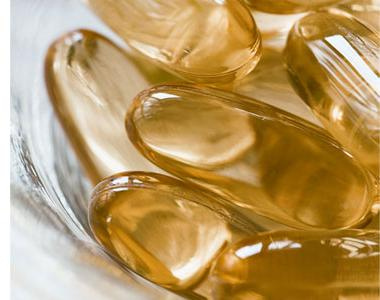
 I know you’ve heard about them. Antioxidants, in today’s health language, are almost synonymous with “health-promoting.” They’re a primary reason why fruits and vegetables are deemed to be so good for us. A lot of people have asked me, though: Is it okay to take antioxidants during treatment? Unfortunately, there’s no simple answer.
I know you’ve heard about them. Antioxidants, in today’s health language, are almost synonymous with “health-promoting.” They’re a primary reason why fruits and vegetables are deemed to be so good for us. A lot of people have asked me, though: Is it okay to take antioxidants during treatment? Unfortunately, there’s no simple answer.
Strictly defined, an antioxidant is a molecule capable of slowing or preventing what’s called the “oxidation” of other molecules. You can think of them as cell protectors, for that’s what they typically do in the body-protect cells from damage, including damage that can lead to cancer.
Antioxidants come in many different forms. Some of the most well known are the vitamins C, E, and A, all of which are now proven antioxidants. Others, naturally present in foods like fruits and vegetables, come in the form of “phytonutrients”-things like resveratrol, beta-carotene, and lycopene. Still others are present in minerals like selenium, which has antioxidant enzymes.
I have some friends who swore that antioxidants helped them during treatment, yet most doctors want you to stay away from them-in supplement form, at least. That means no vitamins A, C, or E, and no supplemental lycopene, resveratrol, quercetin, etc. Check the ingredient lists on your skin care products as well, as skin can absorb antioxidants, particularly those used in moisturizers.
The fear is that supplemental antioxidants will protect your cancer cells as vigorously as they do your healthy cells, making your treatment less effective. Some studies, for example, have found that cancer cells seem to soak up antioxidants like vitamin C, leading researchers to question whether or not the cancer cells might then use the vitamin to shield themselves against radiation and chemotherapy.1 Some chemotherapy drugs work in part by creating free radicals that destroy cancer cells, and one study highlighted the concern that antioxidants may interfere with that, since they typically neutralize free radicals.2 One animal study found that mice receiving antioxidant-depleted diets experienced reduction in their brain tumors, compared to mice receiving extra vitamins E and A.3 Another found that using antioxidants decreased radiation therapy side effects, but may have decreased the effectiveness of the treatment as well.4
Many other studies, however, have found antioxidants to be helpful during treatment. Women in China who took vitamin E and C during the first six months after they were diagnosed with breast cancer, for example, had a reduced risk of death and recurrence of their cancer.5 Another recent study found that antioxidant drugs, such as those used to treat malaria and diabetes, could help treat cancer, with researchers suggesting that we reconsider using antioxidants as anti-cancer agents.6 There are many more studies like these, showing that antioxidants can help kill tumors and reduce side effects during treatment.
One of the latest scientific reviews of the evidence, however, concludes that antioxidants still have the potential to reduce the effectiveness of treatment, so they discourage people to take them during chemotherapy or radiation.7 The whole thing is pretty complex, with things like type of antioxidants used, dosage, and type of treatment all affecting the outcome, so it will probably be awhile before science can give us any definite answers. Meanwhile, the best advice is to eat a healthy diet (which can include antioxidant-rich foods), and if you’re considering taking antioxidant supplements, always check with your doctor beforehand to be sure you won’t be affecting your treatment.
Have you talked to your doctor about antioxidants? Please share your story.
Sources
- “Cancer Tumors Shown to Consume Large Amounts of Vitamin C. Researchers are Cautious About Cancer Patients Taking Vitamin C Supplements,” Memorial Sloan-Kettering Cancer Center, 1999. http://www.mskcc.org/mskcc/html/1166.cfm.
- Labriola D, Livingston R. Possible interactions between dietary antioxidants and chemotherapy. Oncology. 1999;13:1003-1012.
- Williamson D, “Study: Avoiding Vitamins A, E Might Improve Cancer Therapy,” University of North Carolina News Services, December 13, 1999, www.unc.edu/news/newsserv/research/dec99/salganik121399.htm.
- Bairati I, Meyer F, Gelinas M, et al. A randomized trial of antioxidant vitamins to prevent acute adverse effects of radiation therapy in head and neck cancer patients. J Clin Oncol. 2005 Jul 18. [Epub ahead of print]
- “Vitamin Supplement Use During Breast Cancer Treatment and Survival: A Prospective Cohort Study,” Cancer Epidemiol Biomarkers Prev 20: 262-271 (February 2011).
- Trimmer, Casey, et al., “Caveolin-1 and Mitochondrial SOD2 (MnSOD) Function as Tumor Suppressors in the Stromal Microenvironment: A New Genetically Tractable Model for Human Cancer Associated Fibroblasts,” Cancer Biology & Therapy, 11 (4): February 15, 2011.
- Lawenda BD, Kelly KM, Ladas EJ, et al. Should supplemental antioxidants administration be avoided during chemotherapy and radiation therapy? J Natl Cancer Inst. 2008 May 27.
Photo courtesy the Try2Success via Flickr.com.

